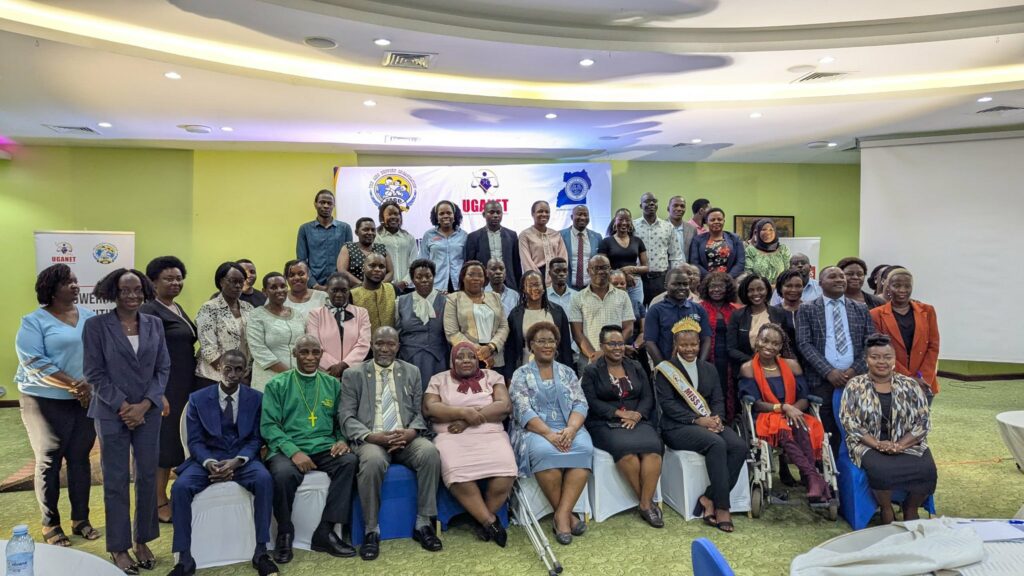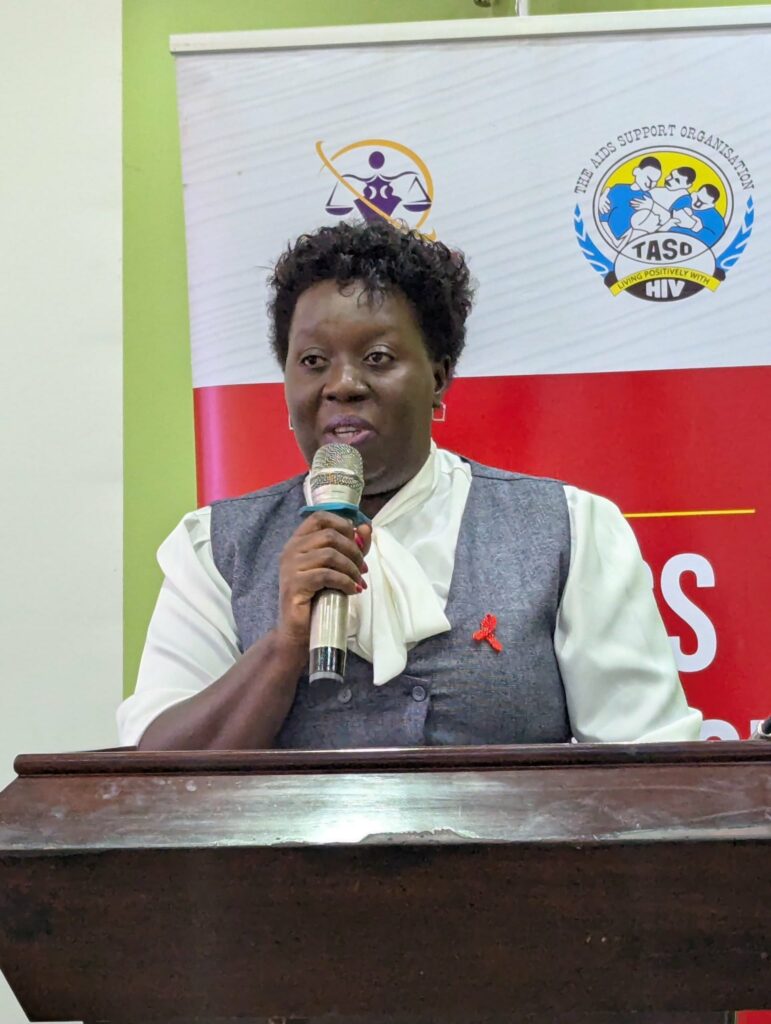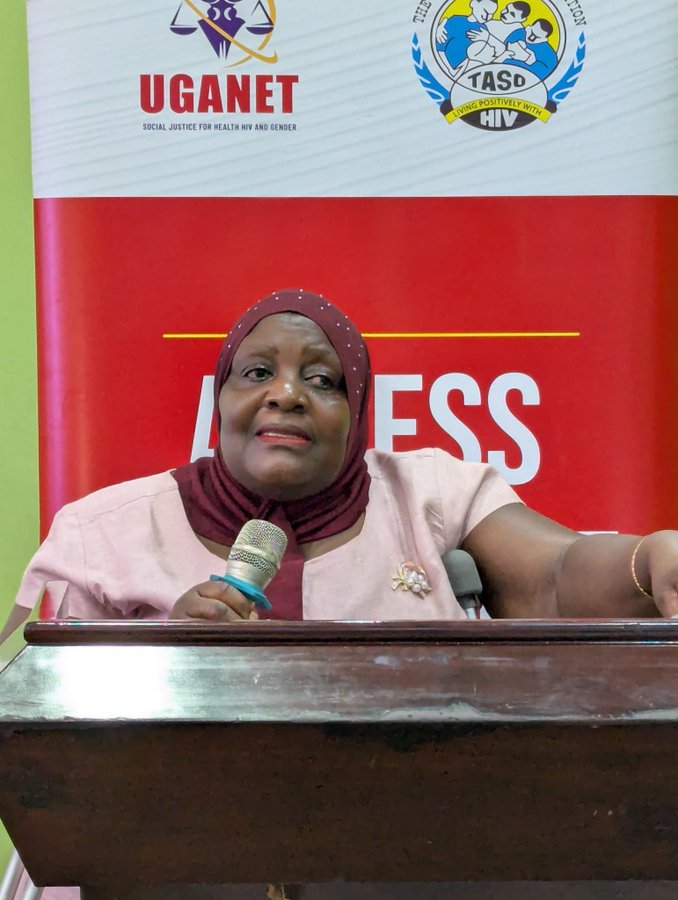
 Mama FM
Mama FM

 Mama FM
Mama FM
11 December 2024, 9:45 am
By Byamukama Alozious

On 10 December 2024, Uganda hosted its sixth high-level national dialogue on HIV, human rights, and stigma. The event brought together key stakeholders, including government representatives, civil society organisations, healthcare providers, and people living with HIV (PLHIV), to reflect on the country’s progress and the challenges that persist in addressing the HIV epidemic. The dialogue focused on combating stigma and discrimination, which continue to hinder efforts in the fight against HIV/AIDS.
Grace Naiga, Executive Director of the Uganda Network on Law, Ethics, and HIV/AIDS (UGANET), opened the session by emphasising the importance of international reflection on human rights as a foundation for the future.
“As we commemorate this day, we convene rights holders, stakeholders, law enforcers, and partners to reflect on the year as we have seen it. This dialogue is a critical platform to confront stigma and discrimination,” she stated. Naiga highlighted Uganda’s significant progress in reducing HIV prevalence and expanding access to treatment but noted that stigma continues to undermine these achievements by fostering fear, misinformation, and inequality.

She referred to the 2023 UNAIDS Global Report, which identified stigma and discrimination as major obstacles to achieving HIV targets. “Our mission is deeply rooted in advancing social justice, promoting health equity, and legally empowering marginalised populations. This event aligns with those efforts to ensure that every individual living with HIV is treated with respect, dignity, and equality,” Naiga emphasised.
Naiga also called on the government and other stakeholders to allocate additional resources to combat stigma and to ensure the robust enforcement of anti-discrimination laws. She highlighted a troubling practice in some churches where couples planning to marry are required to undergo HIV testing, with the results subsequently discussed in committees. “In 2024, these practices must be addressed. We must uphold the fundamentals of human rights as enshrined in the Constitution of the Republic of Uganda,” Naiga urged.
Sofia Nalule Juuko, the Executive Director of the Equal Opportunities Commission, also spoke at the event, recognising the commission’s critical role in addressing stigma and ensuring justice. She commended the commission’s recent decisions, including the Gloria vs. Pastor case, which marked an important step in tackling workplace discrimination against people living with HIV. “Delayed justice is justice denied,” Nalule stressed, underscoring the urgency of swift action on human rights violations.
She called for increased resource allocation to combat stigma, stating that the Equal Opportunities Commission’s work is essential in ensuring justice and equality for marginalised communities.

Jimbo Shanurah, a young representative and Y+ Queen 2024, expressed his concerns about the disproportionate impact of HIV on young girls and women in Uganda. “Globally, girls aged 15 to 19 are twice as likely as boys to acquire HIV, and in Uganda, one in four new infections occurs among adolescent girls and young women,” Jimbo noted. He emphasised the importance of empowering young people and ensuring they have platforms to speak out and contribute to policy changes that affect their lives.
Her Worship Jackline Kagoya, a magistrate judge, also addressed the dialogue, underlining the need for the legal system to safeguard the rights of people living with HIV and provide a voice for marginalised groups, particularly young people. “Many young people have visions and policies they want to amend, but they don’t have the opportunities to stand up here. They are in the communities, and we need to provide the proper support to help them graduate and achieve their goals,” Kagoya remarked.
Kagoya also highlighted various forms of gender-based violence, including sexual violence, and its connection to HIV transmission. “The law is very clear that when defilement is reported, the first step is to test the perpetrator,” she explained. She stressed that if the perpetrator is HIV-positive, the crime should be classified as aggravated defilement. Kagoya further addressed economic violence, pointing out instances where women are subjected to control over their finances, such as men holding women’s ATM cards to manage household expenses.
The dialogue concluded with a renewed commitment from all stakeholders to tackle stigma and discrimination, promote health equity, and uphold the rights of those living with HIV. Participants agreed to continue working collaboratively to ensure that Uganda’s HIV response is inclusive, compassionate, and firmly rooted in human rights.